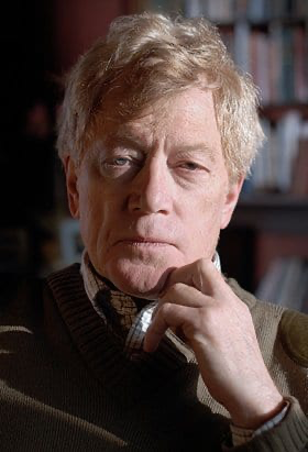“Beauty has been central to our civilisation for over 2000 years. From its beginnings in ancient Greece philosophy has reflected on the place of beauty in art, poetry, music, architecture and everyday life. Philosophers have argued that through the pursuit of beauty we shape the world as a home. We also come to understand our own nature as spiritual beings. But our world has turned its back on beauty and because of that we find ourselves surrounded by ugliness and alienation.
“I want to persuade you that beauty matters; that it is not just a subjective thing, but a universal need of human beings. If we ignore this need we find ourselves in a spiritual desert. I want to show you the path out of that desert. It is a path that leads to home.” ROGER SCRUTON

Why Beauty Matters,
written and hosted by Roger Scruton,
directed by Louise Lockwood
(BBC 2009),
The British philosopher Roger Scruton (1944-2020) was a prolific defender of the value of beauty. Our resource collection includes many of his lectures, articles, and books. This documentary is a good place to start, as it contains many ideas from Scruton’s book Beauty (also published as Beauty: A Very Short Introduction) and uses examples of art and architecture that he also uses in his lectures. In a 2015 article, Scruton relates something of the story of how the documentary was received: (https://www.eurocanadian.ca/2015/01/roger-scruton-why-beauty-matters.html).
Scruton was asked to create this documentary as part of a series that the BBC did on beauty. He was specifically invited to present a conservative voice. There were two other documentaries that were less enthusiastic about beauty as a value with continuing relevance. This documentary traces ideas about beauty throughout history, attempting to show that contemporary contempt for beauty is an anomaly. The documentary format allows for examples from art, music, and architecture to be well presented.
Toward the end of his life, Scruton was an active member of his local Anglican church, where he played the organ, and he identified himself as a Christian, though his theological commitments were at best obscure. In this 2009 documentary, Scruton does not present himself as a Christian, but seems to find in the arts a substitute for religion. He concludes the documentary this way:
Art and music shine a light of meaning on ordinary life, and through them we are able to confront the things that trouble us and to find consolation and peace in their presence. This capacity of beauty to redeem our suffering is one reason that beauty can be seen as a substitute for religion. Why give priority to religion? Why not say that religion is a beauty substitute? Better still, why describe the two as rivals? The sacred and the beautiful stand side by side, two doors that open onto a single space, and in that space we find our home.
Scruton is right that beauty opens onto the same space as religion, but not because art is just as important as worship. Rather, they open onto the same space because all real beauty comes from God, who is the Beauty Ever Ancient, Ever New. There is no other source for beauty than God, just as there is no other source for existence and no other source for goodness. I would like to believe that Scruton came to realize this in the years after making this documentary.